Visitor Information
See the Quad Cities overview for information on tourism centers, festivals, and getting around the region or contact the Quad Cities CVB (563.322.3911).
History
The village of Buffalo, though small today, once had a big future, at least in the eyes of early Europeans like Captain Benjamin W. Clark. He moved his family from Andalusia, Illinois across the Mississippi and quickly got to work building a log cabin and plowing up parts of his 2,000 acres.
Clark led an interesting life. A native of Virginia, he lived in a few different Mississippi River towns beginning in the 1820s, including Warsaw, Illinois and the community that later became Rock Island. At Rock Island he had a good relationship with the neighboring Sauk and Meskwaki Indians, and was apparently good friends with both Keokuk and Black Hawk. In spite of those friendships, he volunteered to fight in the Black Hawk War, which is when he earned his Captain title. After the war, he lived in Andalusia, Illinois before moving across the river.
In 1836, Clark sold about 90 acres of his claim for the future village of Buffalo. Platted in 1836 by Captain E.A. Mix and Dr. Pillsbury of Buffalo, New York (hence the village’s name), the site already had a fine two-story hotel that Clark had built. Clark had also started ferry service at the site, which proved to be quite popular because it was an easy place to cross the Mississippi. A ferry would operate at Buffalo for the next 50 years.
As Buffalo grew, though, its neighbors conspired against it. In late 1837, legislators drew new county boundaries for what is now eastern Iowa (but was then part of Wisconsin Territory). Making new counties meant a few cities would soon be a county seat, a coveted status as it guaranteed a certain amount of economic activity that wouldn’t be subject to the normal fads and whims in the economy. When the new boundaries were made public, Buffalo’s rivals, chiefly Antoine LeClaire from Davenport and Dr. Eli Reynolds from Muscatine, had managed to put the village in Scott County but very near the Muscatine County line. Because it was not in the middle of either county, Buffalo had no shot at becoming a county seat and no longer posed a threat to those growing neighbors.
While the loss of the county seat dealt a blow to the village’s future, Buffalo managed to attract industry, anyway, including a lumber mill, a brick and tile factory, a couple of button factories, two breweries, a glass factory, a couple of coal mines, and a quarry. The staple of the local economy, though, was farming. Agriculture is still part of Buffalo’s economy, as is the quarry, but many residents commute to jobs in the Quad Cities or Muscatine.
Exploring the Area
Check out the village’s history at the Buffalo Historical Society Museum (409 3rd Street; open Sunday afternoons).
Parks Along the Mississippi River
There’s a public beach on the Mississippi River at the south end of town.
Entertainment and Events
Festivals
The city’s main event is Buffalo Days, which takes place around the 4th of July. You’ll find a parade, live music, food and craft booths, and more.
**Looking for information about other Mississippi River communities? Check out Road Tripping Along the Great River Road, Vol. 1. Click the link above for more. Disclosure: This website may be compensated for linking to other sites or for sales of products we link to.
Where to Sleep
Camping
Buffalo Shores County Park (1433 W. Front St.; 563.328.3281) has a popular campground between the river and railroad tracks (open April to October); the 65 sites have water and electricity and a shower house.
Resources
- Scott County Library–Buffalo Branch: 329 Dodge St.; 563.285.4794, ext. 3.
- Post Office: 329 Dodge St.
Where to Go Next
Next stop upriver: Davenport.
Next stop downriver: Montpelier.
Community-supported writing
If you like the content at the Mississippi Valley Traveler, please consider showing your support by making a one-time contribution or by subscribing through Patreon. Book sales don’t fully cover my costs, and I don’t have deep corporate pockets bankrolling my work. I’m a freelance writer bringing you stories about life along the Mississippi River. I need your help to keep this going. Every dollar you contribute makes it possible for me to continue sharing stories about America’s Greatest River!
©Dean Klinkenberg, 2014,2019

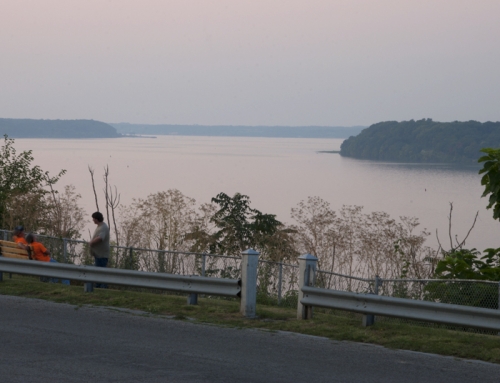
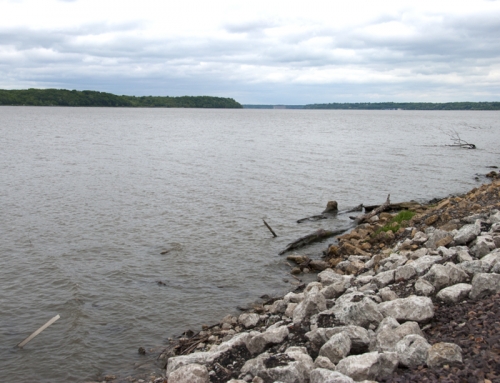
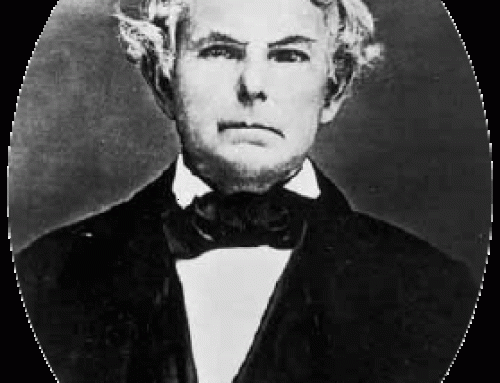
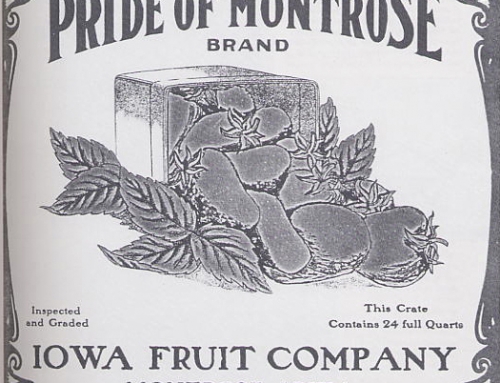
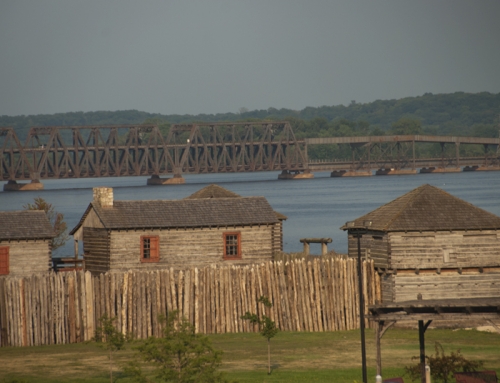
And thanks for reading it! Glad you enjoyed it.
Interesting information. Thank you for sharing it!